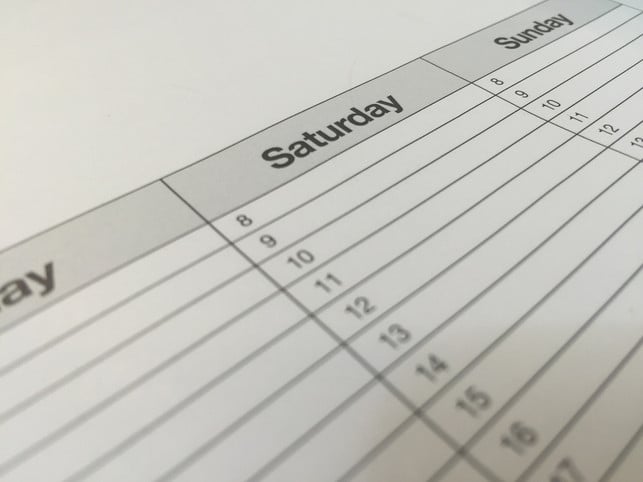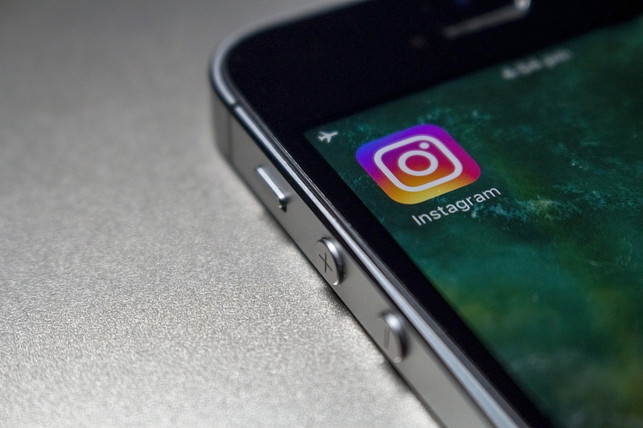
Leisure stress affects more and more people. Not taking a break even in our free time is seriously damaging to our well-being. You can find out how you can avoid this type of stress here.
After a strenuous week at work, you’re usually looking forward to the long-awaited weekend. But a look at the appointment calendar shows that more and more people have a full program on Saturdays and Sundays: one appointment after another, many plans and obligations – from driving the children to household chores to long overdue calls to friends: inside and family. There is hardly any time for a proper break and recovery before the new working week begins again. If this sounds familiar, then you may be suffering from leisure stress, which is unhealthy in the long term.
What is leisure stress?
The psychologist Dr. Annalisa Stefanelli tells Sanitas magazine that leisure stress is no different from other forms of stress. With every form of stress there is an imbalance. Then external expectations or your own goals cannot be reconciled with your individual ability to implement or mentally cope with these goals. We therefore exceed our capacities, feel overwhelmed, rushed and dissatisfied.
However, stress is not necessarily always a negative thing:
- According to the Sanitas magazine, in psychology there is the so-called eustress. It is a type of positive stress: we overcome a stressful challenge, but are rewarded with a feeling of fulfillment at the end.
- In the case of so-called distress, however, this feeling does not occur. Challenges and a busy schedule tend to trigger threatening feelings.
If we experience negative stress over a longer period of time, our body reacts to it. According to the University Hospital of Zurich, constant stress promotes numerous diseases. These include, among others
-
mental illnesses such as depression, anxiety disorders or burnout
-
Cardiovascular diseases (such as a heart attack or high blood pressure)
-
Gastrointestinal problems (such as irritable bowel syndrome)
What we perceive as stress varies from person to person. Maybe you have a full schedule every weekend, but don’t see it as a burden, but rather as an asset. Others are overloaded with just a few appointments or responsibilities and need significantly more time for themselves.
What stress means can also differ for a person depending on the phase of their life. That’s why it doesn’t make sense to compare your own feelings of stress with those of other people. Ultimately, only you know what you need right now and how you can best recover from a full work week, social conflicts or other challenges.
Why do we feel stress during leisure time?

(Photo: CC0 / Pixabay / kropekk_pl)
A 2024 YouGov survey found that around 45 percent of respondents have little to very little time for personal interests and that 50 percent sometimes to very often experience pressure or time pressure in their free time.
Possible reasons have been recorded by the Leisure Monitor 2022, which has been examining the leisure behavior of Germans since 1982. The results of the survey include the answers from 3,000 people between 1982 and August 2022. According to the evaluations, the main trigger for leisure stress is the feeling of wasting time. Many people say they feel stressed during their free time, for example when they are stuck in traffic, waiting in lines or having to spend time with people they don’t like.
Planning your own life can also cause stress. The reasons given by those surveyed include, for example, the apparent incompatibility of career and family.
However, according to the 2022 survey, the biggest triggers for leisure stress were:
- not having enough time for yourself and others,
- having spent too much money,
- a constant flood of advertising in everyday life
- and noise pollution from third parties.
But why is leisure stress such a current issue, especially these days? Ulrich Reinhardt, the scientific director behind Freizeit-Monitor, tells the Süddeutsche Zeitung a clear reason: social media.
Social media and FOMO

(Photo: CC0 / Pixabay / Webster2703)
According to Reinhardt, social media has made us forget how to enjoy our free time. Because on Instagram, TikTok and other platforms we are constantly confronted with how other people enjoy their lives. This creates a certain amount of pressure in us – and the fear of missing out on something. A fixed term has now been established for the latter: FOMO (Fear Of Missing Out).
According to Reinhardt, this fear of missing out, which also promotes leisure stress, is the result of a modern obsession with optimization. We see the seemingly perfect lives of our fellow human beings and want to have a life that is at least as perfect. We then begin to optimize everything in life, including our free time. This means that we don’t just lie on the couch for a few hours on Sunday and read a book, but instead fill our day off with activities – just so we have something exciting to say or can post corresponding pictures on Instagram.
So we often go to an event not because we really want to, but because we are afraid not to go. In this way, we no longer enjoy our leisure activities but turn them into obligations to ourselves. Leisure stress is the result.
Leisure stress: This is how you avoid it
Social media, the associated constant networking and growing social pressure are the main causes of leisure stress. You can use this knowledge to consciously avoid leisure stress and really relax in your free time:
-
Digital Detox: For a relaxing weekend, it’s best to leave your smartphone switched off in the drawer or only check at certain intervals whether you have received messages or calls. Ideally, you should avoid social media entirely.
-
Doing nothing: Have you had a busy schedule all week? Then you can simply block off a day or at least a few hours on the weekend in which you can unwind and take time for self-care.
-
Cancellation: Your friends are all going to that one party, birthday or concert, but you would prefer to just stay at home? Then it is advisable to give in to your need for rest. To do this, however, you have to learn to say “no”.
-
Hobbies: On weekends, on days off or on vacation you have time to pursue your hobbies. Ideally, this creates so-called “flow” moments in which you forget about space and time and your next to-do lists for a while. This can happen, for example, when cooking or walking, playing sports, playing music or painting.
-
Mindfulness: By regularly integrating meditation, breathing exercises and relaxation techniques into your everyday life, you can consciously reduce your stress level. This may also give you better access to your needs. We are often so stressed in everyday life that we no longer know exactly what we actually want. However, if you sit down for a moment, close your eyes and take a deep breath, you might realize what you need most now: a friendly game night or just warm tea, a couch and an exciting book.
Read more on Techzle\.com:
- Time management: tips and methods for less stress
- Nature against stress: This is how much time you should spend in the countryside
- Why spending too much time on your cell phone can shorten your life
Edited by Annika Reketat
** marked with ** or orange underlined Links to sources of supply are partly partner links: If you buy here, you are actively supporting Techzle\.com, because we then receive a small part of the sales proceeds. More info.